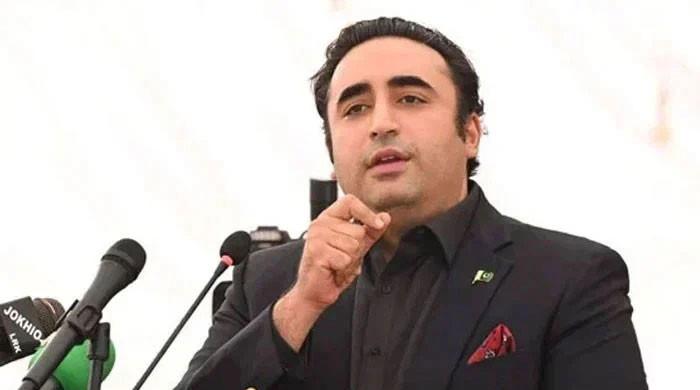PPP Chairman Criticizes India’s Actions on Indus Water Treaty
ISLAMABAD: Following India’s recent announcement regarding the Indus Water Treaty after the Pahalgam incident, Pakistan Peoples Party (PPP) Chairman Bilawal Bhutto-Zardari stated that New Delhi’s independent actions could lead to its international and domestic isolation.
Speaking on a television program, the former foreign minister remarked, “Even during wartime, such measures were avoided. India’s present course is unprecedented, suggesting a focus on exploiting terrorism for political advantage rather than addressing it.”
This statement was made in response to a deadly attack in Indian Illegally Occupied Jammu and Kashmir (IIOJK), where numerous tourists were killed in the Pahalgam region. A Nepali citizen was among the deceased.
Subsequently, India implemented various measures against Pakistan, which included the suspension of a water-sharing agreement, the announced closure of the primary land border crossing, a reduction in diplomatic relations, and visa withdrawals.
Pakistan responded by ordering the removal of Indian diplomats and military advisors and canceling visas for Indian citizens, with an exception for Sikh pilgrims. Pakistan also closed its side of the main border crossing.
The United Nations has called for both Pakistan and India to exercise “maximum restraint,” emphasizing that any disputes should be settled through peaceful and constructive engagement.
During his television appearance, Bilawal emphasized that India does not have the right to unilaterally suspend the Indus Waters Treaty, noting its international recognition and the involvement of other parties, including the World Bank.
Bilawal added, “Weaponizing water at a time when the world is grappling with climate change is both irresponsible and immoral.”
He cautioned that if water becomes a cause for conflict, future generations may face perpetual war. He added, “No nation will support actions that undermine an internationally recognized water-sharing agreement.”
The PPP chairman stated that India is not pursuing peace but is instead actively weakening the internationally recognized status of IIOJK. “The revocation of Article 370 was not a response to terrorism but a crackdown on peaceful protesters and political figures,” he said.
Bilawal accused India of blurring the distinction between legitimate resistance and terrorism, thereby avoiding its international legal responsibilities in Kashmir by consistently blaming Pakistan. He asserted, “They believe they can continue to repeat past actions, but the world is now aware of these tactics.”
He noted that while the world is united in condemning terrorism, no one is prepared to support India’s independent efforts to politicize shared resources or violate international agreements.
Regarding the canal project, Bilawal said that the federal government has acted responsibly, and any final approval would require the consent of the Council of Common Interests (CCI).
“It has been agreed that new canals will only be constructed with consensus. Unilateral decisions are ineffective in a democracy,” he stated.
He alleged that certain groups are attempting to incite regional tensions, particularly between Sindh and Punjab, for their personal gain, adding, “Such negative influences will be addressed politically.”



Comments (0)
No comments yet. Be the first to comment!
Leave a Comment